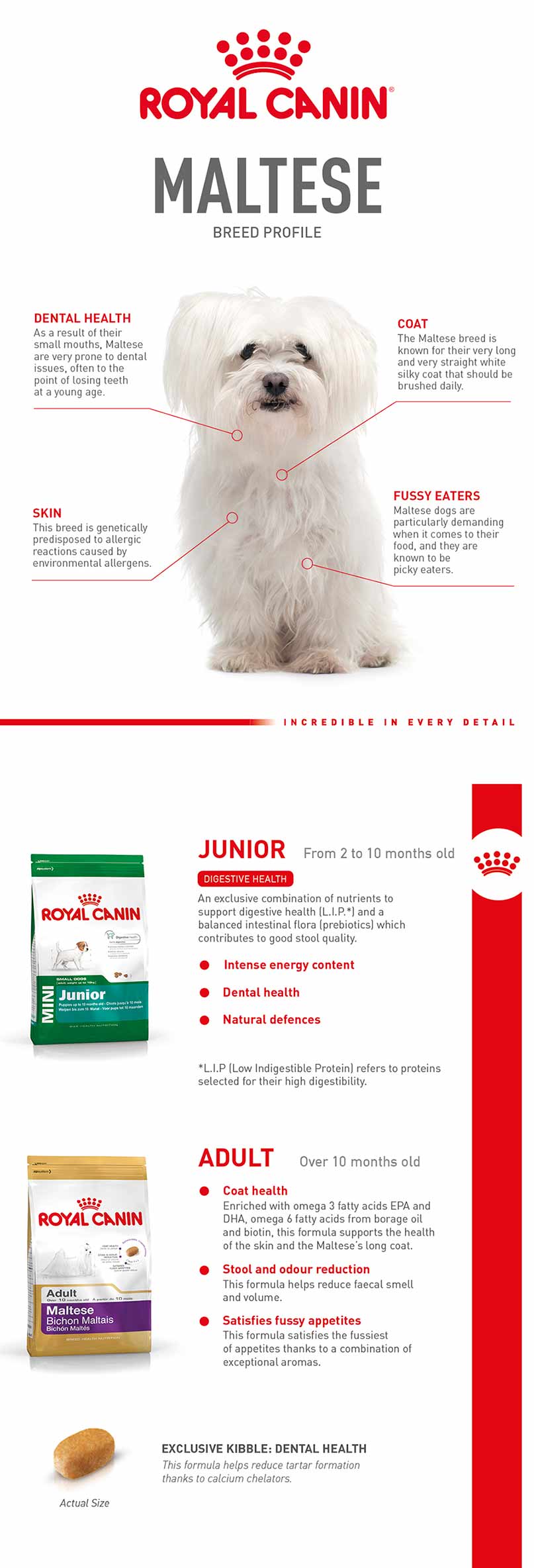Looking for the perfect diet for your adorable Maltese dog? Did you know that these fluffy companions have a sensitive digestive system? This means that finding the right food for them can be quite a challenge.
When it comes to feeding your Maltese, it’s important to choose a high-quality dog food that is specifically formulated for small breeds. Due to their small size, they require a diet that is rich in protein and nutrients to support their energy levels and overall health. Additionally, consider opting for food that is gentle on their stomachs to avoid any digestive issues. Working closely with your veterinarian to determine the right portion sizes and monitoring their weight is essential for maintaining their well-being.

What to Feed Maltese Dogs: A Complete Guide
Welcome to our complete guide on what to feed Maltese dogs! If you’re a proud Maltese owner or considering getting one, it’s important to ensure their nutritional needs are met. In this article, we’ll dive into the specifics of a Maltese’s diet, including their dietary requirements, feeding schedule, and tips for maintaining a healthy and balanced diet. So, let’s get started and ensure your furry friend stays happy and healthy!
Dietary Requirements for Maltese Dogs
Maltese dogs have unique dietary requirements that differ from other breeds. It’s crucial to provide them with high-quality dog food that is specifically formulated for small breeds. Look for dog food that contains real meat as the primary ingredient, with additional nutrients such as omega-3 fatty acids, antioxidants, and probiotics. These elements promote a healthy coat, optimal digestion, and overall well-being.
In addition to commercial dog food, you can also include fresh and natural ingredients in your Maltese’s diet. This can include lean proteins like chicken or turkey, as well as vegetables like carrots and green beans. However, avoid feeding them toxic foods such as chocolate, onions, grapes, or anything with caffeine, as these can be harmful to their health.
Remember to provide your Maltese with fresh water at all times. Hydration is essential for their overall health and well-being. Ensure their water bowl is clean and easily accessible.
Feeding Schedule for Maltese Dogs
Establishing a consistent feeding schedule is crucial for your Maltese’s health and well-being. As a small breed, Maltese dogs tend to have smaller stomach capacities, so dividing their food into multiple meals throughout the day is recommended. Most veterinarians suggest feeding adult Maltese dogs 2-3 small meals daily.
As puppies, Maltese dogs have higher energy requirements and might need to eat more frequently. Generally, it’s recommended to feed them 3-4 meals a day until they reach around six months of age, after which you can transition them to a 2-3 meal schedule.
Remember to monitor your Maltese’s weight and adjust their portion sizes accordingly. Overfeeding can lead to obesity and other health issues. Consult with your veterinarian to determine the appropriate amount of food for your specific Maltese.
Tips for Maintaining a Healthy Diet for Maltese Dogs
Keeping your Maltese on a healthy diet involves more than just choosing the right food and feeding schedule. Here are some additional tips to ensure their diet is optimal:
1. Monitor their weight:
Weigh your Maltese regularly to ensure they are maintaining a healthy weight. Obesity is a common issue in small breeds and can lead to various health problems.
2. Avoid overfeeding:
Stick to the recommended portion sizes provided by the dog food manufacturer or your veterinarian. Avoid giving in to those adorable begging eyes!
3. Limit treats:
Treats are an important part of training and bonding with your Maltese, but they should be given in moderation. Opt for healthy, low-calorie treats and factor them into their overall daily calorie intake.
4. Consider dental health:
Maltese dogs are prone to dental issues, so incorporating dental hygiene into their routine is important. Choose dental chews or provide them with appropriate toys to promote good oral health.
5. Regular vet check-ups:
Take your Maltese for regular check-ups and discuss their diet with your veterinarian. They can provide personalized advice and address any concerns or dietary changes that may be necessary.
The Importance of a Balanced Diet for Maltese Dogs
A balanced diet plays a significant role in your Maltese’s overall health and longevity. Providing them with the right nutrients ensures their coat stays shiny, their immune system stays strong, and they have the necessary energy for their daily activities. A well-fed Maltese is a happy and healthy companion, so always prioritize their nutritional needs.
Key Takeaways: What to Feed Maltese Dogs?
- 1. Balanced and high-quality dog food is essential for Maltese dogs.
- 2. Look for dog food specifically formulated for small breeds.
- 3. Include lean protein sources, such as chicken or turkey, in their diet.
- 4. Fruits and vegetables can be given as healthy treats in moderation.
- 5. Avoid feeding Maltese dogs human foods that are toxic to them, like chocolate or onions.
Frequently Asked Questions
Welcome to the frequently asked questions section about what to feed Maltese dogs! If you’re a proud pet parent of a Maltese or considering getting one, it’s important to provide them with the right nutrition. These adorable dogs have unique dietary needs that should be met for their overall health and well-being. Below, we’ve answered some common questions to help you make informed decisions about feeding your Maltese.
Q: How often should I feed my Maltese?
A: Maltese dogs are small and have high metabolisms, so they need to eat more frequently compared to larger breeds. It’s recommended to feed your Maltese small, portioned meals throughout the day to avoid digestive issues. Aim for three to four meals, evenly spaced apart, to provide a balance of nutrients and prevent overeating. Consult with your veterinarian for specific feeding guidelines based on your Maltese’s age, size, and activity level.
Remember to monitor your Maltese’s body condition and adjust their feeding schedule accordingly. If your dog seems to be gaining weight, reduce the portion sizes or consult your vet for guidance. Always provide fresh water for your Maltese to stay hydrated throughout the day.
Q: What should I include in my Maltese’s diet?
A: A well-balanced diet for a Maltese should consist of protein, carbohydrates, healthy fats, vitamins, and minerals. Look for high-quality dog food specifically formulated for small breeds. Opt for brands that list real meat as the main ingredient and avoid fillers or by-products. It’s also important to choose food that is appropriate for your Maltese’s age and activity level.
In addition to commercial dog food, you can include cooked lean meats (such as chicken or turkey), fruits, and vegetables in your Maltese’s diet. However, it’s crucial to avoid toxic foods for dogs like chocolate, grapes, onions, and garlic. Consult with your vet to ensure you’re providing the right balance of nutrients for your furry friend.
Q: Can I give my Maltese treats? If so, which ones are suitable?
A: Yes, you can give your Maltese treats as part of their diet, but moderation is key. Treats should only make up a small portion of their overall caloric intake. Opt for healthy, low-calorie treats specifically made for small dogs. You can also offer your Maltese small pieces of fresh fruits and vegetables, like blueberries or baby carrots, as occasional treats.
Avoid giving your Maltese table scraps or high-fat, sugary treats, as they can lead to weight gain and other health issues. Always read the labels and choose treats that are safe for dogs and appropriate for their size.
Q: Are there any specific foods I should avoid feeding my Maltese?
A: Yes, there are several foods that are toxic or potentially harmful to Maltese dogs. Avoid feeding your Maltese chocolate, grapes, raisins, onions, garlic, avocado, alcohol, caffeine, and any food that contains xylitol (a commonly used sugar substitute). These foods can cause serious health problems, including kidney damage, liver failure, or even death.
It’s also important to limit the amount of salt, spices, and seasonings in your Maltese’s diet. Excessive sodium can lead to dehydration and other health issues. If you’re unsure about the safety of a particular food item, consult with your veterinarian before feeding it to your Maltese.
Q: Do I need to consider any specific dietary needs as my Maltese ages?
A: As your Maltese ages, their nutritional needs may change. Senior Maltese dogs may require a diet that is lower in calories to help manage their weight and prevent obesity. Additionally, they may benefit from foods that support joint health, such as those containing glucosamine and chondroitin.
Your veterinarian can provide guidance on transitioning your Maltese to a senior-specific diet and any additional nutritional supplements that may be beneficial. Regular check-ups are essential to monitor your aging Maltese’s health and make any necessary adjustments to their diet.

10 Human Foods That Are Actually Best For Your Maltese Dog
Summary
Choosing the right food for your Maltese dog is essential for their overall health. Maltese dogs have specific dietary needs, and it’s important to consider their size, age, and any health conditions they may have.
A balanced and nutritious diet for a Maltese dog should consist of high-quality dog food that includes protein, carbohydrates, healthy fats, and essential vitamins and minerals. It’s important to avoid feeding them human food, as it can be harmful to their health. Additionally, portion control is crucial to prevent obesity and maintain a healthy weight. Providing fresh water and regular exercise are also important for their well-being.
In conclusion, feeding your Maltese dog a balanced and appropriate diet will contribute to their overall health and happiness. By considering their specific needs and providing them with the right food, you can ensure that your furry friend stays healthy and energetic for years to come.
